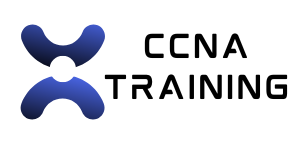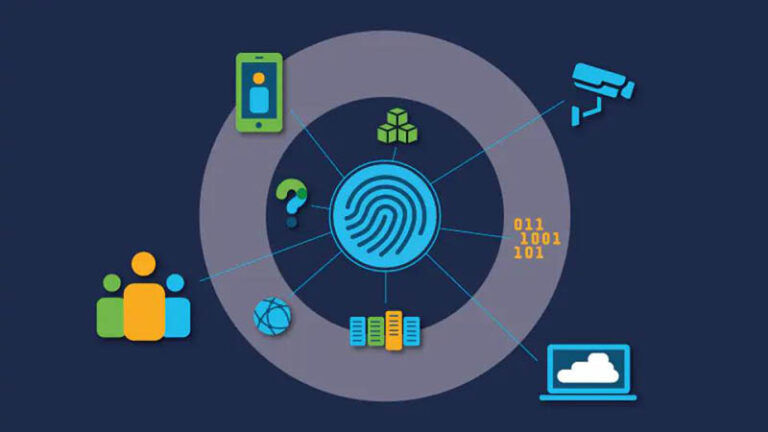With good reason, cybersecurity is currently one of the most sought-after career fields. All businesses, regardless of size, require qualified experts who can safeguard their networks, systems, and data. However, it can be challenging to know where to start if you’re just getting started. Should you immediately pursue a security-focused certification such as CISSP, CEH, or CompTIA Security+?
In actuality, earning your Cisco Certified Network Associate (CCNA) certification is among the best first moves you can make.
You may initially be surprised by that. The CCNA is a networking certification, not a security one, after all. However, if you ask any seasoned cybersecurity expert, they will probably tell you the same thing: you must comprehend how a network functions before you can protect it.
Knowing the Basics of Cybersecurity
There is more to cybersecurity than firewalls, antivirus programs, and passwords. Fundamentally, it’s about safeguarding the flow of data across a network. This entails being aware of the devices that transmit and receive data, the protocols that regulate the flow, and the routes that data follows as it moves between locations.
It will be difficult to identify unusual activity if you don’t understand how a network works. Furthermore, how can you spot an attack in progress if you don’t know what “normal” looks like?
The CCNA can help with that. It imparts the fundamental abilities needed for cybersecurity. You’ll discover how IP addressing functions, how switches and routers manage traffic, how devices locate one another via DHCP and DNS, and how VLANs and access control lists divide networks. These are not merely networking ideas; they are the systems you will be attempting to protect and the ones that attackers attempt to take advantage of.
Actual Cybersecurity Advantages of CCNA Experience
Suppose you are employed as a security analyst. Examining logs, monitoring traffic trends, and reacting to alerts are all part of your work. You can rapidly comprehend the network paths involved in those alerts if you possess CCNA-level knowledge. You’ll know when internal devices are contacting dubious external IP addresses, when traffic is attempting to get past firewalls, or when an incorrectly configured DNS setting is putting the company at risk.
Or perhaps you’d like to work as a penetration tester, who looks for vulnerabilities in networks. To properly identify and take advantage of vulnerabilities, you must comprehend how the target network is configured. That information is directly derived from the CCNA curriculum.
Deep network knowledge is also essential for incident response teams. You must take quick action when something goes wrong, such as a malware infection or data breach. The ability to track an attack across routers, switches, and IP addresses can mean the difference between a major attack being stopped quickly and causing significant damage.
You can write better policies and interact with technical teams more effectively if you understand how data flows across the network, even if compliance or security policy roles are more your style.
CCNA as an Initial Step
You’ll be in a much better position to advance in cybersecurity after earning your CCNA. The knowledge you’ve gained will facilitate comprehension of the subjects addressed in security-focused certifications, such as:
- CompTIA Security+, which addresses fundamental security principles and instruments
- Focused on working in a SOC, the Cisco CyberOps Associate
- As a Certified Ethical Hacker (CEH), testing networks requires an understanding of how they function.
- CompTIA CySA+ or CASP+, which call for more advanced network defense and analytical abilities
You will have context, which is more significant. Employers will value you more if you understand how things work in the real world rather than just memorizing words or concepts for the test.
The Reasons Why Employers Adore the CCNA
Employers in the cybersecurity industry are looking for candidates who can comprehend the infrastructure they are attempting to safeguard, not just those with security certifications. When you demonstrate your CCNA, you are demonstrating your practical understanding of network operations.
This increases your appeal as a candidate for entry-level security positions such as:
- Analyst for Security
- Tier 1 or Tier 2 SOC Analyst
- Technician in Network Security
- Security-focused IT support
- Penetration tester junior
Apprentice or Intern in Cybersecurity
Having a CCNA can often give you an advantage over other applicants who did not take the networking basics course. These are the types of jobs that help you get your foot in the door.
Don’t Ignore the Fundamentals
The field of cybersecurity is dynamic, exciting, and ever-changing. But you need a solid foundation if you want to establish a long-term career. That’s what the CCNA gives you. It imparts the useful skills that underpin all of the other security-related knowledge you will acquire.
Therefore, don’t ignore the networking component if you’re serious about a career in cybersecurity. Take the CCNA first. Create a strong base. After that, advance into the security position you want.
You can’t defend something you don’t understand, and this is where understanding begins.
















